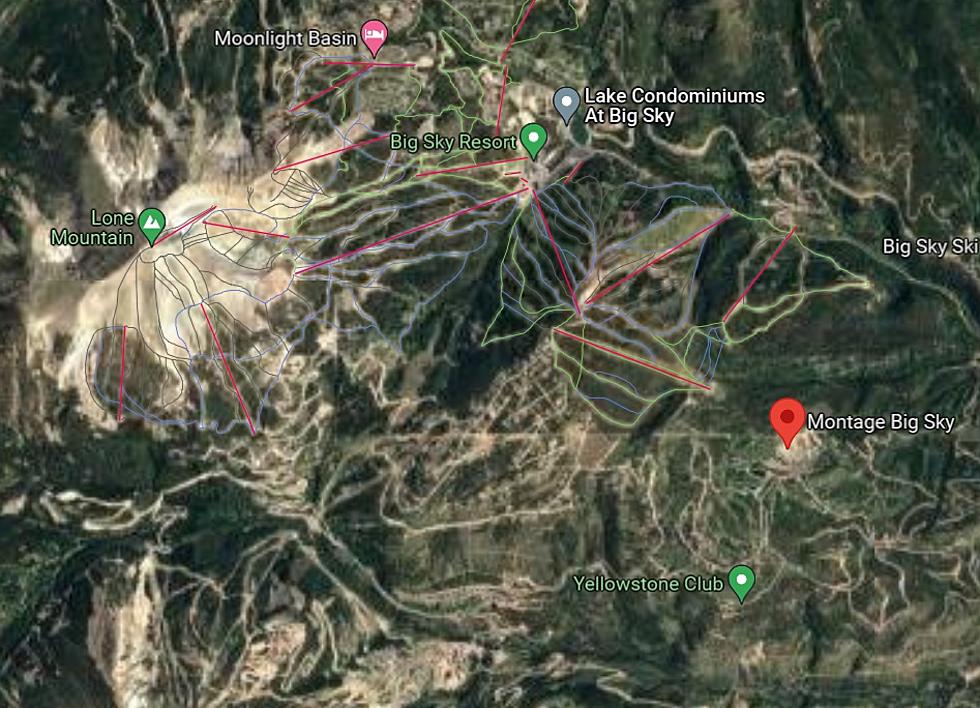
Senate Passes Bills to Increase Hotel Room, Car Rental Taxes
By AMY BETH HANSON Associated Press
HELENA, Mont. (AP) — The Montana Senate passed bills to raise taxes on hotel rooms, rental cars and marijuana sales ahead of Monday's deadline to send revenue bills to the House, where they face an uncertain fate among Republican representatives who oppose tax hikes.
Senators and representatives closed a busy stretch of the 90-day session in which they spent hours hearing and voting on money bills that packed their agendas and would have died if they had not passed.
Besides the tax and marijuana measures, lawmakers kept alive bills dealing with prescription drug pricing, retaliation complaints against Child and Family Services, ongoing child support for children with disabilities and a long-running effort to expand the Montana Historical Society's museum.
Here are some of the measures that made the cut:
HISTORICAL SOCIETY
The Senate passed a bill to raise money to renovate and add on to the Montana Historical Society museum and provide grants for other museums by increasing the tax on hotel rooms and campsites from 3% to 4%.
Republican Sen. Terry Gauthier said the bill would, over the next five years, raise $34 million for construction of the Montana Heritage Center near the Capitol, with out-of-state visitors paying about 80% of the tax. Some of the increased tax will go to grants for museums around the state.
Efforts to fund a new, larger history museum have been thwarted because lawmakers rejected plans to borrow money for the work while fundraising efforts struggled. The Montana Historical Society has said for years it needs additional space to display more of its vast collection.
RENTAL CAR TAX
The Senate passed a bill to increase the rental car sales tax from 4% to 6% of the base cost of the rental, which would bring an additional $2.8 million on average into the state's checkbook in each of the next four years. Part of the tax funds a program that provides transportation services for senior citizens and persons with disabilities.
Republicans rejected Democratic Gov. Steve Bullock's proposals to raise taxes on hotel rooms and rental cars during the November 2017 special session, which was called to address a projected $227 million budget shortfall.
Before the House passed a $10.3 billion spending plan last week, Republican Rep. Nancy Ballance noted the House Appropriations Committee decided not to raise taxes and said she hoped the Senate "holds up" the budget. The House in February passed a bill that would have required a 2/3 vote of the Legislature to increase any tax or fee, but it was tabled in the Senate Taxation Committee.
MEDICAL MARIJUANA
Senators also passed a bill to restore the tax on gross sales on medical marijuana to 4% to pay for needed regulation. The tax was initially set at 4% starting July 2017 and was reduced to 2% starting in July 2018.
PRESCRIPTION DRUGS
The House passed a bill Monday requiring pharmaceutical manufacturers to report prices for prescription drugs whose cost increased by more than 10% and for drugs that cost $100 or more for a one-month supply or a single course of treatment. The bill requires manufacturers to explain the factors that led to any price increase, the drug's research and development costs and the names of any available generics.
DISABILITIES AND CHILD SUPPORT
The House passed a bill to extend the child support obligation when the custodial parent of a person with a disability must continue to be a caregiver after their child turns 19. Courts can order such support until the individual is no longer financially dependent on the custodial parent or is no longer considered to have a disability. The bill allows custodial parents of adult children with a disability to petition the court for a new support order with the judge taking into account the adult child's eligibility for public benefits and services.
CHILD AND FAMILY SERVICES
The House also passed a bill to allow a parent, family member or foster parent to submit a complaint to the ombudsman of the office of Child and Family Services for alleged retaliatory actions by the agency or its workers against people who complain about the system. It appropriates $167,000 over the next two years to pay for a staffer to investigate the complaints.
More From KMMS-KPRK 1450 AM








![Bozeman Commission’s $2.3 Million Shell Game Voter Scam [Listen]](http://townsquare.media/site/8/files/2020/02/RS5082_147292100-scr-1.jpg?w=980&q=75)
